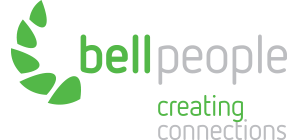Fifty-one per cent of Australians say they would stay longer with their current employer if the remote working policies introduced over the last year remain permanent, and 12 per cent said they would probably quit their job if they were forced back into the office full time, according to a new Qualtrics survey.
The Future of Work in 2021 Report: Perspectives on the New Normal interviewed 1,000 full-time employees throughout Australia and New Zealand. The research also found that 77 per cent of respondents believed it was important their employment allowed them to live anywhere when looking for a new role.
Other key findings of the survey include:
Individual contributors want to return to the office more than managers
While 71 per cent of all employees say they want to split their working week across remote and on-site locations, individual contributors want to return to the office permanently more than their managers and business leaders. Almost a quarter (22 per cent) of individual contributors said they never want to work remotely, a sentiment only echoed by 12 per cent of managers, 14 per cent of business leaders, and 6 per cent of C-Level executives.
Productivity has increased with remote work
For most managers, any concerns they held regarding employee productivity when working remotely have been debunked by the pandemic. The majority of managers (51 per cent) said their direct reports had been more productive working remotely.
This was a trend seen across the workplace, with 41 per cent of respondents saying their co-workers have been more productive and half agreeing they have been more productive themselves. The top reasons for improved productivity were flexible schedules, no commuting time, and the ability to focus on work with fewer interruptions.
The office becomes the home of collaboration
Despite the majority of respondents wanting to split their working week across remote and on-site locations, the physical office remains critical to team collaboration and bonding. Forty-seven per cent said the office should be redesigned as a place for collaborative work and some independent spaces.
Alongside this, a lack of human connection was a common theme in the things people missed about working in the office over the last 12 months – with spontaneous interactions (29 per cent), being around other people (24 per cent), exposure to diverse perspectives (18 per cent), and exposure to what other colleagues are doing (17 per cent) the things people missed most.
Healthcare has benefited most from new experiences
Respondents ranked healthcare as the top industry to have benefited from new experiences driven by the pandemic, supported by an increase in telehealth and digital services. Retail appeared second on the list, highlighting the impact of enhanced digital capabilities, followed by food, which benefited from improved delivery options.
Digital cements its role in customer experience
When asked to list the new experiences that ought to be standard after the pandemic, hybrid models for shopping and the ability to click and collect were two of the top choices.
Customers also want virtual entertainment and fitness classes to become standard offerings, alongside pre-fill forms online and curbside pick-up from restaurants and cafes. Another popular new experience people want to remain – and the only one not dependent on digital – is more outdoor seating for restaurants.
“After a year of unprecedented disruption, businesses in Australia and New Zealand are now entering a reorientation phase, where many of the new behaviours and preferences adopted, will remain after all restrictions have lifted. With two-thirds (65 per cent) of organisations still to announce their post-pandemic return to work plans, businesses have a great opportunity to redesign and improve models tailored to new preferences and behaviours,” said Jason Laufer, Managing Director for Qualtrics Australia and New Zealand.
“There is no one-size fits all approach to creating these new working models. Understanding how employees think and feel is critical to making these decisions with confidence and precision, to ultimately improve the experiences being delivered,” he added.

